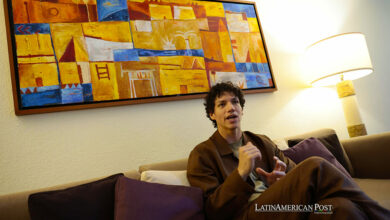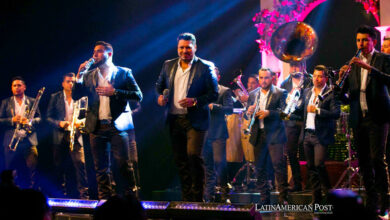Politics in Colombia: between love and hate
Representatives of Colombian politics have experienced emotional extremes during public events

In recent opportunities, Colombian politics has been permeated by the nonconformity of citizens. However, this rejection has led, on several occasions, to the appearance of violence as a form of protest and criticism.
An example of this are the civil movements that have been seen against people like Rodrigo Londoño, better known as 'Timochenko', the main leader of the FARC party, as well as for one of his biggest opponents in Colombia's diplomatic reality: Álvaro Uribe Vélez .
The politics of 'hate'
Both, during the campaigns prior to the election of Congress and Presidency, saw how hundreds of Colombians protested against them.
In the case of Timochenko, the clearest sample of opposition to his candidacy occurred at the beginning of February 2018 in Armenia (Quindío). The former guerrilla went to the western city of the country with the intention of starting his campaign. However, the inhabitants of that city were aware of his presence and, with sticks, stones and chants, called for the departure of Londoño. The same happened in Cali, Valle del Cauca.
In fact, such was the rejection that members of the public force – known as the ESMAD – had to intervene in order to safeguard the life of the 'new' politician; in the background chants of "Murderer" and "No to impunity" were heard.
It is clear that his days as a member of the FARC have taken a toll on Timochenko, because, even though a Peace Agreement has been signed with the National Government, Colombians remember with sorrow -as reported by the Historical Memory Center- the 343 massacres, more than 24,000 kidnappings, and other acts of terrorism that this guerrilla perpetrated during the last 50 years.
But, in the Colombian internal conflict, there were not only two fighters, the FARC and the government, but also the paramilitaries. During the 80s and 90s, armed groups were created whose ideology was contrary to that of the guerrillas that existed previously (M19, FARC, ELN, among others).
However, Colombia is no stranger to the damage that paramilitary groups, such as the United Self-Defense Forces of Colombia (AUC), leave behind. It was the same Historical Memory Center that collected testimonies and experiences of Colombian victims and managed to explain that, out of 220 thousand Colombians killed, more than 16,000 fell IGNORE INTO the hands of the armed groups of the Colombian far right.
But why talk about the paramilitaries? Today, senator Álvaro Uribe Vélez has been strongly criticized by hundreds of Colombians for the alleged links he has with these armed groups.
A few weeks ago, Colombian justice linked Uribe to the massacres perpetrated by paramilitaries in El Aro and La Granja during the 1990s. In addition, he has been accused of supporting the creation of groups such as Las Convivir and Los Doce Apostoles.
Also, according to information from the Attorney General's Office, there are audios that tie him to the purchase of false witnesses sought to testify against the also politician Iván Cepeda. The representative of the 'Polo Democrático' was the one who opened the discussion in Congress about Uribe and his interactions with the Colombian 'parapolitics'.
Extreme love?
However, these politicians are not clearly hated in a country where the caudillismo is latent among the supporters of extreme politics.
In the case of the Cepeda-Uribe debate, the Supreme Court of Justice accused the head of the 'Centro Democrático' of witness tampering for which he was called to declare. On his arrival at the court, a group of supporters accompanied him to the entrance, while they sang the national anthem of Colombia and sang songs of support.
Meanwhile, Timochenko received the attention and applause from dozens of inhabitants of the town of Ciudad Bolívar, south of Bogotá. There, in one of the most vulnerable areas close to Bogota, the leader of the FARC announced his proposals and projects as possible president of the Republic.
Latin American Post | Christopher Ramírez Hernández
Translated from "Política en Colombia: entre el amor y el odio"





